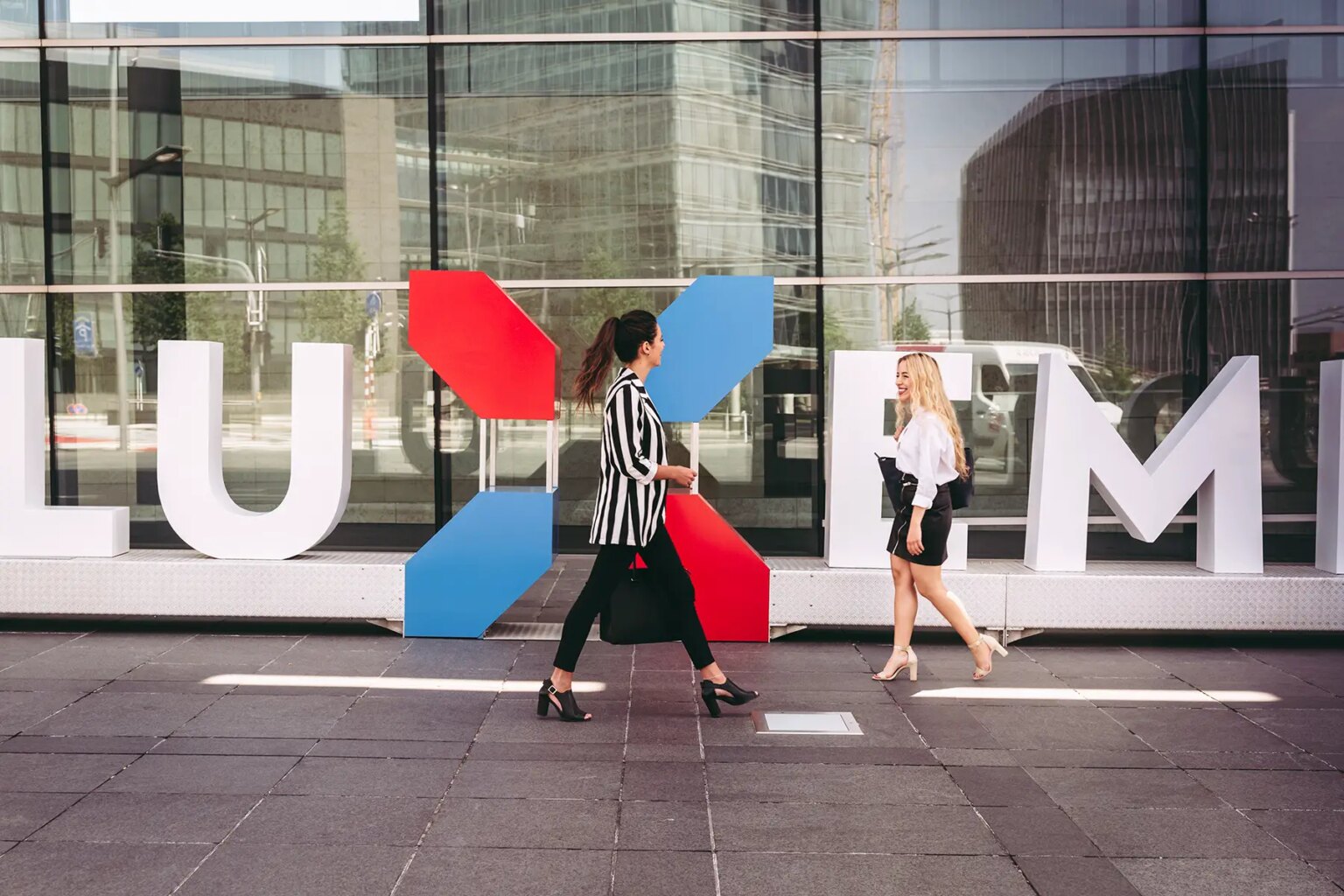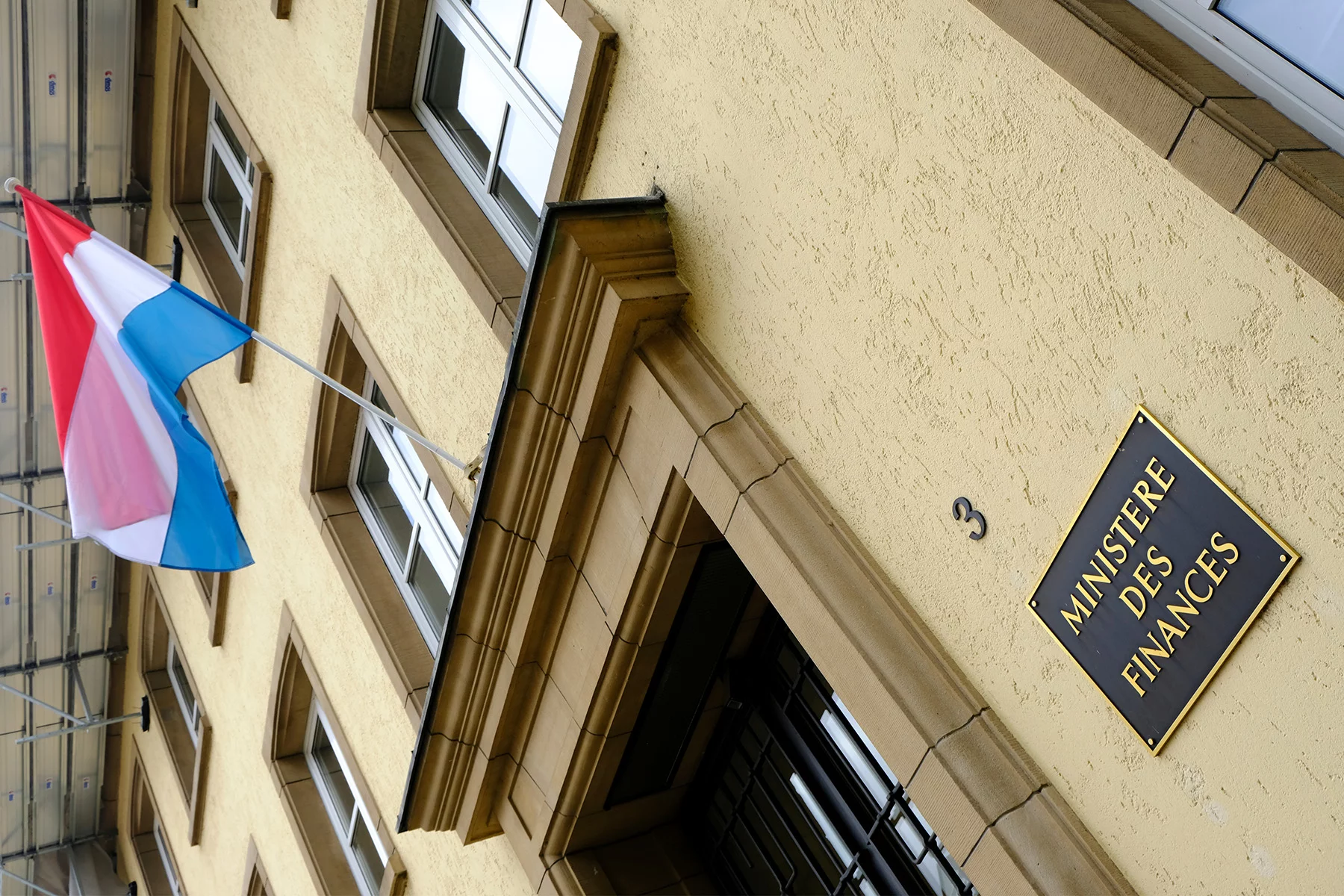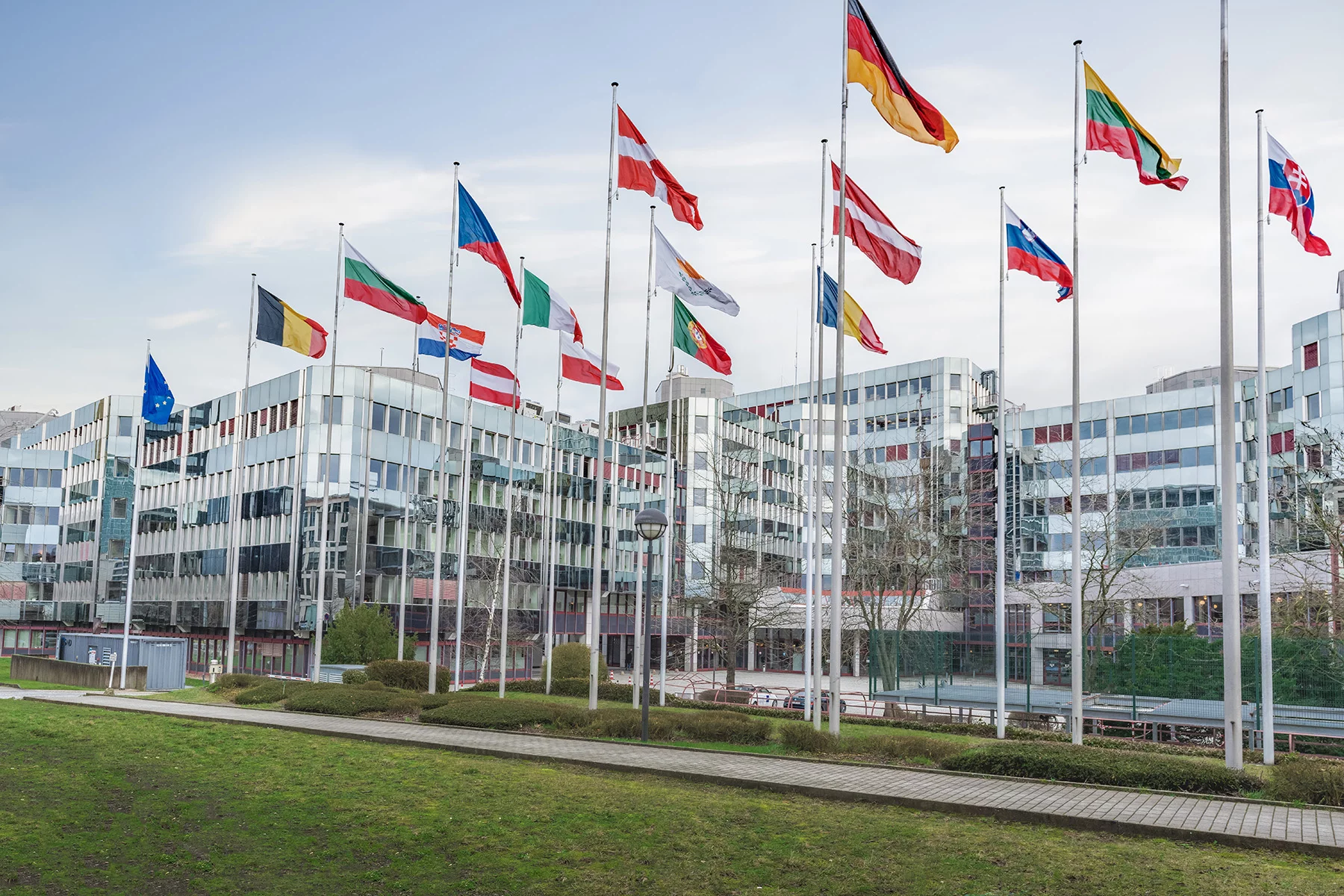Tired of working in a series of jobs just to bolster your CV? Then why not give self-employment a try? In Luxembourg, starting your own business is relatively straightforward, but it can be time-consuming. You’ll need to organize a business permit and complete a lot of paperwork, especially if you set up a limited company or take on employees. You’ll need to consider corporate taxes, social security, and Luxembourgish labor laws.
However, being your own boss can be both financially and emotionally rewarding. Find out all you need to know about starting a business in Luxembourg, with information on:
- What is Luxembourg’s business culture like?
- Who can start a business in Luxembourg?
- Legal structures for businesses in Luxembourg
- How do you start a business in Luxembourg as an expat?
- Starting up an online business in Luxembourg
- Can foreign companies open up a branch or subsidiary in Luxembourg?
- Starting up a non-profit company in Luxembourg
- What are the administration requirements for Luxembourg businesses?
- Support and advice when starting up a business in Luxembourg
- Corporate social responsibility in Luxembourg
- Finding office space in Luxembourg
- What business training courses are available in Luxembourg?
- Useful resources
What is Luxembourg’s business culture like?
Luxembourg is a very business-friendly nation, and, despite its small size, it is something of a global financial hub. It has a GDP per capita of over US$135,000, the highest in the world (2023), and ranks an impressive 19th out of 132 countries on the 2022 Global Innovation Index.
Luxembourg attracts international businesses due to its financial and political stability and low corporate taxes. It has a very diverse workforce, consisting of around 70% migrants and cross-border workers. The country is famed for its financial services sector, but it has a number of other thriving industries, including construction and information and communication technology (ICT).
However, although Luxembourg has an attractive business environment, it can also be tough to start a business there. There are high regulatory requirements, meaning a lot of administrative work before you even get started. Accordingly, in terms of ease of doing business, Luxembourg ranks a relatively modest 72nd out of 190 nations on the 2020 World Bank Doing Business report (PDF).
Who can start a business in Luxembourg?
In theory, anyone can set up a business in Luxembourg. However, all third-country nationals from outside the European Union (EU) or European Free Trade Association (EFTA – Iceland, Liechtenstein, Norway, and Switzerland) need to have a residence permit to start up a business in Luxembourg. This typically means applying for a work-related visa for self-employment or business.
Aside from this, most businesses and self-employed professionals need to obtain a business permit or license to operate in Luxembourg. The exact requirements depend on the nature of the company. To get a permit/license, you may need to show evidence of:
- Qualifications and experience in your field
- Sufficient financial resources to set up and run your business
- Knowledge of one of the main languages of Luxembourg – Luxembourgish, French, or German
- Clean criminal record
Legal structures for businesses in Luxembourg
There are several different legal forms you can use for your business in Luxembourg, ranging from simple sole trader or freelancer to a limited company that sells shares to the public. Deciding which one is most suitable will be one of your first steps.

Here are details on some of the main business forms in Luxembourg. You can read more information on the government website.
Sole proprietorship
A sole proprietorship or sole trader is when an individual, for example, a freelance professional or craftsperson, operates as a business. This is the simplest form of business, as it doesn’t require any minimum capital investment, and you don’t have to set up a separate legal business structure.
Business income is treated as personal income, is not taxed separately, and the owner is fully liable for any business debts. Sole proprietors in Luxembourg trade under their own name, sometimes adding “trading as” or “t/a” if they want to add a unique commercial trade name.
However, sole traders still need to register as a business. They must also demonstrate that they are qualified to trade in their field and, in the case of those practicing one of the liberal professions, need a license or permit.
Partnership
A partnership is similar to a sole proprietorship in structure. The main difference is that the business has more than one owner. Most partnerships remain unincorporated or unlimited, meaning that owners are jointly liable for business debts, and there is no distinction between personal and business income. Profits are shared between partners who pay personal income tax.
There are three main types of business partnerships in Luxembourg:
- General partnership (société en nom collectif – SENC) – where two or more partners are jointly liable; this can be set up with a simple partnership agreement that doesn’t need to be notarized.
- Limited partnership (société en commandite simple – SCS) – similar to a general partnership, but at least one partner has limited liability, meaning that their liability for business debts only extends to their investment in the company and how much they own; SCS partnerships pay corporate taxes on some of their profits.
- Special Limited Partnership (SCSp) – similar to the SCS but the business doesn’t have a separate legal entity and doesn’t pay corporate tax
Private limited company (Société à responsabilité limitée – SARL)
The private limited company is the most common form of business structure in Luxembourg, accounting for around two-thirds of businesses. The SARL is distinct from sole traders and partnerships in that it fully exists as a separate legal entity. Therefore, any owners are legally employees of the business as directors. SARL companies pay corporate tax in Luxembourg, and owners pay personal income tax on business wages. All liability is limited to resources invested in the business.
A SARL can have up to 100 shareholders, however, it cannot trade its shares publicly. It needs a minimum of €12,000 shareholder capital to set up and must fulfill various administrative and regulatory requirements. For example, it needs notarized articles of association and a separate business bank account.
Additionally, Luxembourg also offers the simplified liability company (Société à responsabilité limitée simplifiée – SARL-S). This limited company is easier to set up – for example, the minimum shareholder capital is only €1, and the documents of incorporation don’t need to be notarized.
Public limited company (Société anonyme – SA)
The SA is similar in structure to the SARL, the main difference being that it has shares that can be sold and traded publicly on the stock exchange. SA businesses tend to be larger organizations, however, they don’t necessarily have to be and can be set up with a small number of initial owners/shareholders.

The minimum shareholder capital for setting up an SA in Luxembourg is higher, currently at €30,000. There are also certain accounting requirements applicable only to SA businesses.
Other legal business forms
The main legal business structures in Luxembourg are detailed above, but there are also a number of other possible forms. These include:
- European company (SE) – uses EU laws and can operate across the entire bloc. It is suitable for larger multinational groups that may engage in mergers or restructures, and the minimum shareholder capital is €120,000.
- Cooperative company (Société coopérative – SCOP) – is typically owned and run by employees, with more flexible requirements regarding capital and the number of partners. Additionally, there is no minimum share capital.
- Civil company (Société civile – SC) – is usually set up to manage immovable assets and often used for certain civil, agricultural, freelance, and intellectual professions.
- Partnership limited by shares (Société en commandite par actions – SCA) – is a cross between the SCS and the SA and has a minimum share capital of €30,000.
- Societal impact company (Société d’impact sociétal – SIS) – promotes or benefits a particular social cause, for example, environmental sustainability, gender equality, or social cohesion.
How do you start a business in Luxembourg as an expat?
Once you’ve decided on the best legal form for your business, the next steps are as follows:
- Organize your visa
- Get a permit or license for your company
- Sign up for taxes and social security
The sections below outline how to get started.
Do you need a business visa?
If you are an EU/EFTA citizen or have Luxembourgish permanent residence, you do not require a visa to set up your company. However, nationals of some countries (PDF) require a visa (such as a work visa) to enter the country.
Furthermore, if you come from outside the EU/EFTA and want to start a business in Luxembourg, you’ll need a you’ll need a residence permit for the self-employed. You can apply for this once you are in the country.
Visas and residence permits for self-employed workers are generally valid for up to three years in Luxembourg, but you can renew them as long as you meet requirements. One of these is that your business is still running successfully.
Anyone staying in the country for longer than 90 days must register their arrival in their local commune, regardless of nationality.
Getting your business permit or license
Most businesses in Luxembourg need a business permit or license in place before they can legally trade. Permit requirements depend on the nature of the business but usually involve the owner(s) showing evidence of:
- Valid residence in Luxembourg, for example, citizenship or relevant visa/permit
- Qualifications and experience to carry out the intended work
- Clean criminal record
- Business address
You can apply for a business permit in Luxembourg through the MyGuichet government portal if you register an account. Permits cost €50 and can take up to three months to process. Exact processes and requirements depend on your type of business and the field you set up in. The standard business permit in Luxembourg applies to companies that fall into one of the following three categories:
- Commercial activities – such as retailers, wholesalers, commercial services, and vocational educational establishments
- Skilled craft activities – including those relating to food, fashion, mechanics, construction, media, arts and culture
- Liberal professions requiring a standard business permit – for example, accountants, architects, engineers, and planners
Some businesses require different permits regulated by certain industry bodies. These include:
- Liberal professions requiring other permits – like auditors and various healthcare professionals
- Social and educational professions
- Activities subject to specific registration and/or authorization – such as security services, taxi drivers, childminders, and tattoo studios
Costs, requirements, and application processes for these permits and licenses vary. You can see a full list of regulated professions in Luxembourg and information on requirements to practice in the country, on the government website.
Registering your business in Luxembourg
All businesses in Luxembourg must register with the Trades and Companies Register (Registre de commerce et des sociétés – RCS). For sole proprietorships and partnerships, this is quite straightforward. You can register online on the RCS website once you have your relevant business permit.
For limited companies, the procedure is more complex. You can also register with the RCS online, but you will need to register your constitutional documents, e.g., articles of association, at the same time. These must be signed in front of a notary who then submits them to the RCS as well as the Registration Duties, Estates, and VAT Authority (Administration de l’enregistrement, des domaines et de la TVA). Bear in mind that you will need your business permit for registration.

Before signing your company documents, you must deposit your minimum share capital in a business bank account. However, you cannot open an account for a limited company until you have drafted these documents, so timing and planning is important. Once you have paid in the share capital, the bank blocks it until the company is properly formed.
If you are trading under a business name, you will need to check that the name is unique and get a certificate of availability from the Luxembourg Business Registers (LBR).
You can find a list of registration fees (PDF in French) on the LBR website. Information on notary fees is available on the Chamber of Notaries website (in French).
Tax and social security registration
Before your business can begin trading, you must also register for tax and social security.
All businesses in Luxembourg pay income tax and may also be liable for other costs such as communal business and property tax. Owners of sole proprietorships and partnerships pay tax on their share of the business profits. Limited companies pay corporate tax, and the owners are liable for personal income tax on their salaries.
Tax registration for businesses is through the Luxembourg Inland Revenue (Administration des contributions directes – ACD). You should complete your tax registration shortly after your general business registration, although the ACD usually gets in touch automatically once you’ve registered the business.
Businesses of all legal forms must also register for value-added tax (VAT) if their turnover exceeds €35,000. The deadline is within 15 days of starting the business.
Social security registration is through the Joint Social Security Center (Centre commun de la sécurité sociale – CCSS). If you register as a self-employed owner of a sole proprietorship or partnership, you will make payments to cover you for unemployment, parental benefits, disability benefits, state pensions, and occupational accident pay. You can also enroll voluntarily in the Employers Mutual Insurance Scheme ( Mutualité des employeurs – MDE) to cover sick pay. Those earning less than one-third of the minimum wage in Luxembourg are exempt from social security contributions.
If you employ staff, you need to register with the CCSS as an employer within eight days of the employee’s start date. Both the business and the employee then make mandatory contributions to cover unemployment, maternity/paternity pay, sickness, disability, work-based accidents, and public health insurance.
In certain circumstances, spouses/partners assisting in a self-employed activity must also register with the CCSS as an assisting spouse (conjoint-aidant).
Starting up an online business in Luxembourg
The process for setting up an online or e-commerce business in Luxembourg is largely the same as starting any other company. You still choose a legal structure, apply for the relevant business permit, register your business, and register for tax and social security. You will also need the appropriate visa and permit if you are relocating to Luxembourg.

Additionally, you’ll need to sort out things such as domain name and website design. The Luxembourg Chamber of Commerce has developed a practical guide to launching an e-commerce business in Luxembourg that covers all the elements of getting started and building your online presence.
Can foreign companies open up a branch or subsidiary in Luxembourg?
Foreign companies can open a branch or subsidiary in Luxembourg. A branch is an extension of the parent company and doesn’t have its own legal identity, whereas a subsidiary is legally separate from the parent company, which is its majority owner and shareholder.
Opening a branch of a foreign business in Luxembourg is the easier option. As it is not a separate company, you won’t need to comply with business registration procedures, and there is no minimum capital. However, you must apply for a business permit, inform Inland Revenue of the branch opening, and provide annual financial data. You will also need to register with the CCSS for social security payments if you employ staff.
If you open a subsidiary, you must start a separate legal business in Luxembourg. This involves all of the formalities of setting up a regular business. The parent company is a majority shareholder, but the subsidiary is taxed as a Luxembourgish business.
One of the advantages of opening up a subsidiary is that the parent company has limited liability, so it won’t suffer financially or otherwise if the enterprise in Luxembourg isn’t successful. There may also be other tax benefits. You can check out the fiscal implications of both types of business on the government website.
Starting up a non-profit company in Luxembourg
There are two main types of non-profit organizations in Luxembourg: foundations and non-profit associations (Association sans but lucratif – ASBL).
Individuals who want to provide money to charitable or social causes can set up a foundation. They are often created according to instructions in somebody’s will. Foundations in Luxembourg exist as separate legal entities, similar to limited companies, with articles of association and a board of directors. They don’t engage in profit-making activities but receive funding through donations, grants, and capital holdings.
To set up a foundation in Luxembourg, you must apply for approval from the Ministry of Justice (MoJ). You can do this online through the MyGuichet portal. There is no minimum capital investment for non-profit foundations, but you must register with the RCS and tax authorities. You must also register with the CCSS if you put any staff on the payroll.
On the other hand, an ASBL requires a group of at least three people uniting behind a common cause. Like foundations, the ASBL needs articles of association, a board of directors, and registration with the RCS to become official. Those furthering a charitable, philanthropic, or social cause can apply for public interest organization status through the MoJ. Additionally, they must register with Inland Revenue and social security services if they generate a taxable income or employ paid staff.
Both foundations and ASBLs need authorization from the MoJ to receive donations above €30,000.
What are the administration requirements for Luxembourg businesses?
If you run any profit-making business in Luxembourg, you must keep formalized financial records that conform with the standard chart of accounts (Plan comptable normalisé – PCN). Sole traders and partnerships with a gross turnover of €100,000 or less can keep simplified accounts that comply with the rules of double-entry bookkeeping.
Businesses subject to PCN rules need to file annual accounts with the RCS. These are available for public viewing.

All businesses, no matter their income, must submit tax returns to the ACD. Sole traders, partners, and freelancers file personal tax returns. Limited companies complete corporate tax returns, while directors must comply with personal income tax obligations. You will also need to comply with rules and pay other taxes associated with your business, for example, VAT.
Other administrative requirements to bear in mind after starting a business in Luxembourg include:
- Banking – limited companies need a separate bank account by law in Luxembourg. However, it’s a good idea for sole proprietorships and partnerships to open extra business bank accounts to make things easier.
- Insurance – most businesses need some form of liability insurance but you may also wish to take out additional policies, such as property insurance, professional indemnity insurance, or business interruption insurance.
- Hiring staff – in addition to sorting out social security and tax payments for employees, you must also comply with Luxembourg’s labor and work visa/permit laws.
You can search our Business Directory for Luxembourg to find expat-friendly services that will help you navigate your way around the various administrative requirements.
Support and advice when starting up a business in Luxembourg
You can get support and advice from a wide range of resources when starting a business in Luxembourg. The government web page for new businesses has information on various forms available. In addition to this, you can find information on the following websites:
- Ministry of the Economy
- Société Nationale de Crédit et d’Investissement
- Chamber of Commerce Luxembourg, which includes the Mutualité de Cautionnement et d’Aide aux Commerçants and the House of Entrepreneurship
- Microlux (support for micro businesses)
- Startup Luxembourg
- Technoport
- LuxInnovation (hub for startups in Luxembourg)
Corporate social responsibility in Luxembourg
Although businesses in Luxembourg are encouraged to consider Corporate Social Responsibility (CSR) and implement policies and strategies, this is still voluntary. Luxembourg scores fairly well in terms of ethics and CSR, ranking 33rd out of 166 nations on the latest UN Sustainable development rankings with a score of 77.65 out of 100. Meanwhile, it even ranks 10th in Europe on CSRHub, scoring 54/100 (based on the performance of 84 companies).
If you’d like to make your business in Luxembourg more ethical or sustainable, both the government and the Chamber of Commerce can offer support and advice on drawing up a strategy or adopting initiatives. You can also contact the National Institute for Sustainable Development and Corporate Social Responsibility (in French).
Things to consider could include:
- Making your business more environmentally sustainable and energy efficient
- Empowering employees by offering better decision-making capabilities
- Supporting your community by getting involved in local projects
- Donating a percentage of profits to good causes
- Encouraging business partners and clients, including those in your supply chain, to adopt more ethical practices
Finding office space in Luxembourg
You can look for office space on various different web platforms such as Immotop or AtHome. The Luxembourg-City Incubator offers shared and private office space as well as additional business support programs and co-working opportunities.
What business training courses are available in Luxembourg?
You can enrol in a study course at many of Luxembourg’s universities or further education institutions if you want to improve or refresh your business skills. However, you should find out if you need a study visa.
The following places offer useful business-related short courses:
- Chambre de Métiers – provides training courses in several craft and professional areas.
- House of Training – deals in both online and face-to-face training in a range of business disciplines.
- Nyuko – training and coaching for entrepreneurs in Luxembourg
- Start Your Business – business training for jobseekers in Luxembourg
- Luxembourg-City Incubator – has a startup support program that includes expert mentoring and coaching.
Useful resources
- Guichet.lu – government portal with a section for starting up and developing new businesses in Luxembourg
- How To Set Up A Business In Luxembourg – booklet published by the House of Entrepreneurship
- Chamber of Commerce Luxembourg – has a wealth of information on setting up a business in Luxembourg.









